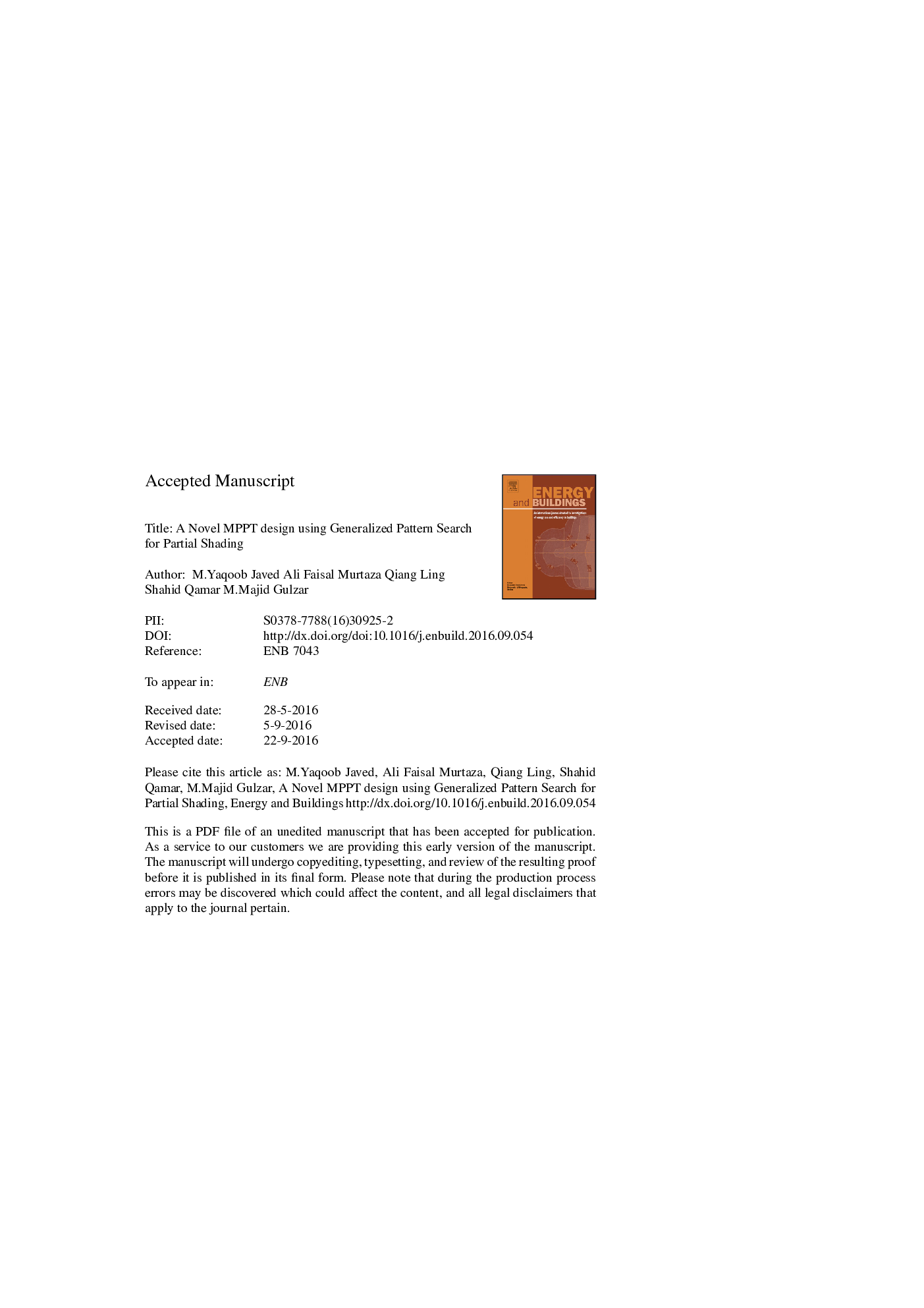| کد مقاله | کد نشریه | سال انتشار | مقاله انگلیسی | نسخه تمام متن |
|---|---|---|---|---|
| 4919492 | 1428957 | 2016 | 27 صفحه PDF | دانلود رایگان |
عنوان انگلیسی مقاله ISI
A novel MPPT design using generalized pattern search for partial shading
دانلود مقاله + سفارش ترجمه
دانلود مقاله ISI انگلیسی
رایگان برای ایرانیان
کلمات کلیدی
موضوعات مرتبط
مهندسی و علوم پایه
مهندسی انرژی
انرژی های تجدید پذیر، توسعه پایدار و محیط زیست
پیش نمایش صفحه اول مقاله

چکیده انگلیسی
This paper proposes a new Maximum Power Point Tracking (MPPT) technique for photovoltaic (PV) systems especially under Partial Shading (PS). This technique is based on Generalized Pattern Search (GPS) optimization algorithm. The proposed technique adopts the GPS algorithm owing to the reason that its major features like simple implementation, derivative free nature, fast convergence and high accuracy are ideally suited to deal with PS conditions. Furthermore, these features of GPS can well resolve the limitations and drawbacks of previous MPPT techniques, such as fluctuation, low efficiency, high complexity and slow convergence. For comparison, our proposed MPPT algorithm, the Particle Swarm Optimization (PSO) algorithm and the Perturb and Observe (P&O) algorithm have been implemented in MATLAB/Simulink. The comparison results demonstrate that the proposed MPPT technique can efficiently detect the global maximum (GM) in a fewer number of voltage samples, which is nearly 4 times less than the number of voltage samples required by PSO. Moreover, the steady state efficiency of the proposed MPPT is 99.8%, which is higher than the other MPPT techniques. Therefore, the proposed technique distinguishes itself from other MPPT techniques due to its superior quality in terms of convergence speed, dynamic and steady state efficiencies and low complexity.
ناشر
Database: Elsevier - ScienceDirect (ساینس دایرکت)
Journal: Energy and Buildings - Volume 133, 1 December 2016, Pages 59-69
Journal: Energy and Buildings - Volume 133, 1 December 2016, Pages 59-69
نویسندگان
M. Yaqoob Javed, Ali Faisal Murtaza, Qiang Ling, Shahid Qamar, M. Majid Gulzar,